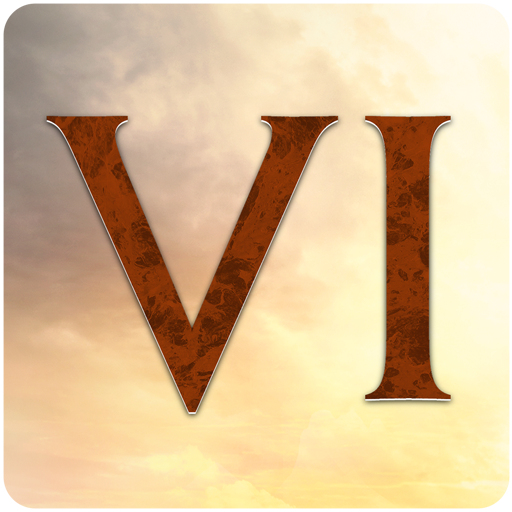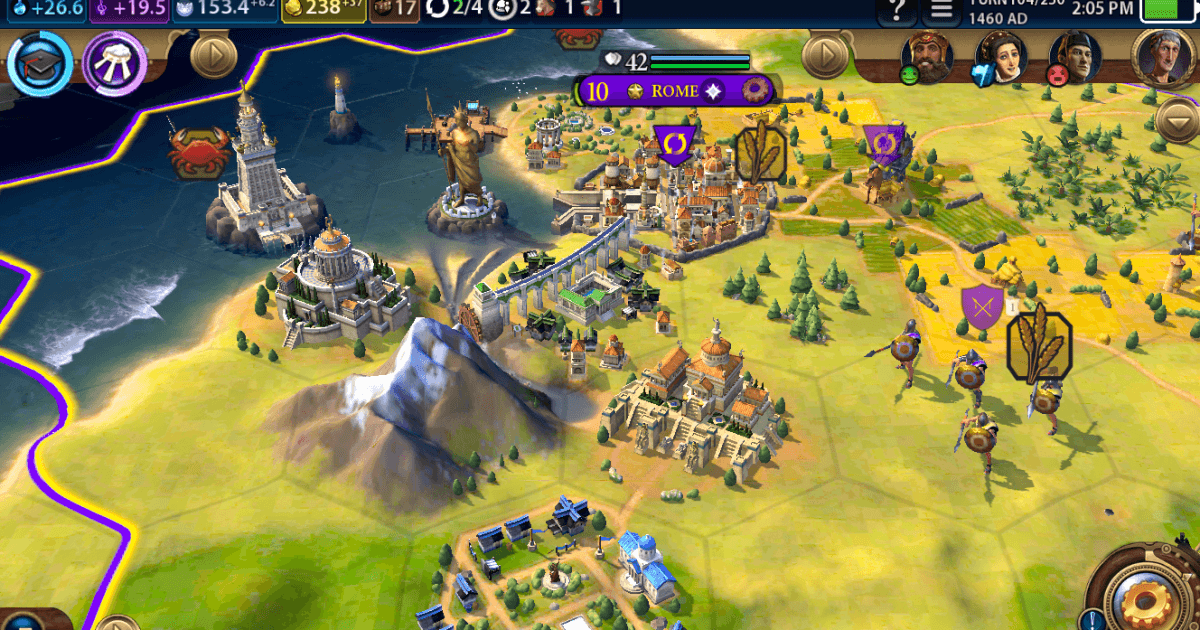Civilization VI: NETFLIX Beginner’s Guide: Essential Tips to Get Started

Civilization VI: NETFLIX is a massive 4X strategy game where you lead a civilization from the ancient era to the modern age. With deep mechanics, multiple victory paths, and unique civilizations to choose from, the game can feel overwhelming at first. But once you understand the basics, every turn becomes a step toward building a powerful empire. Got questions about guilds, gaming, or our product? Join our Discord for discussions and support!
This guide breaks down the essential aspects of the game in a way that’s easy to understand. You’ll learn about turn-based gameplay, resources, victory conditions, and how to manage your civilization effectively. Whether you’re aiming for military dominance, scientific progress, or cultural influence, this guide will help you start strong and plan for long-term success.
The Basics of Civilization VI: NETFLIX
Civ VI is a turn-based strategy game where you control a civilization and expand your empire by exploring, settling cities, researching technology, and engaging with other civilizations. Each turn, you’ll make decisions about city management, military actions, diplomacy, and scientific advancements.

The game starts in the ancient era, and as you progress, you unlock new technologies, government policies, and military units. Your goal is to build a thriving civilization while competing against AI-controlled opponents or other players.
Choosing Your Civilization
There are 20 civilizations in Civ VI Mobile, each with unique bonuses, units, and abilities. Here’s a quick rundown of each one:

- America (Teddy Roosevelt): Strong on home turf, military and diplomatic bonuses.
- Arabia (Saladin): Science and religion-focused with strong faith generation.
- Aztec (Montezuma): Uses luxury resources for military strength.
- Brazil (Pedro II): Excels in Great People generation and jungle-based bonuses.
- China (Qin Shi Huang): Strong early-game builder bonuses.
- Egypt (Cleopatra): Trade bonuses and river-based advantages.
- England (Victoria): Naval dominance and colonial expansion.
- France (Catherine de Medici): Culture and espionage benefits.
- Germany (Frederick Barbarossa): Strong production and military bonuses.
- Greece (Pericles/Gorgo): Culture-heavy civilization with diplomatic advantages.
- India (Gandhi/Chandragupta): Strong religious play with unique faith benefits.
- Japan (Hojo Tokimune): Versatile with bonuses for coastal and district-based play.
- Kongo (Mvemba a Nzinga): Culture and Great People bonuses, but no religion.
- Norway (Harald Hardrada): Naval raids and Viking-themed bonuses.
- Persia (Cyrus): Trade and movement advantages.
- Rome (Trajan): Well-rounded with strong infrastructure and roads.
- Russia (Peter the Great): Expands quickly with bonuses for tundra tiles.
- Spain (Philip II): Religious expansion and naval dominance.
- Scythia (Tomyris): Horse-based military strength and healing bonuses.
- Sumeria (Gilgamesh): Gains rewards from defeating barbarian outposts and receives a gold discount when levying city-state units. The War-Cart is a powerful early-game unit that doesn’t require resources, and the Ziggurat unique building provides science and culture bonuses when built next to a river.
Each civilization has its own playstyle, so picking one that fits your strategy is important. Some are better suited for military victories, while others thrive in culture or science.
Setting Up Your Game
Before starting, you’ll need to customize your game settings:

- Map Size: Determines the number of civilizations and overall scale.
- Difficulty: Ranges from Settler (easiest) to Deity (hardest). Higher difficulties make AI opponents more aggressive and efficient.
- Game Speed: Affects how long each era lasts. Standard speed is balanced, but you can choose quicker or longer game modes.
- Map Type: Includes continents, archipelagos, and more, influencing terrain and strategy.
Choosing the right settings can impact your overall experience, especially when learning the game. A standard speed and Prince difficulty offer a balanced challenge for beginners.
How Turns Work
Each turn, you make decisions about city management, military units, and research. Here’s what typically happens in a turn:

- City Management: Assign citizens to tiles, build districts, and train units.
- Research & Civics: Choose technologies and policies to develop.
- Unit Movement & Combat: Move military units and engage enemies.
- Diplomacy & Trade: Interact with other civilizations and city-states.
As you progress, your choices become more complex, but the core gameplay remains the same. Balancing expansion, military, and economy is key.
Understanding Resources
There are different types of resources in Civ VI:

- Common Resources: Food, production, and gold are used for growth and building.
- Luxury Resources: Improve city happiness and trade value.
- Strategic Resources: Needed for advanced military units (e.g., iron, oil, uranium).
- Science & Culture: Science drives technological progress, while culture unlocks government policies.
- Faith & Tourism: Key for religious and cultural victories.
Managing resources effectively ensures a strong economy and steady progress toward victory.
Victory Conditions
There are five main ways to win:

- Domination Victory: Conquer all capital cities.
- Science Victory: Launch a Mars mission.
- Culture Victory: Attract more tourists than any other civilization.
- Religious Victory: Convert most civilizations to your religion.
- Diplomatic Victory: Earn diplomatic points through world congress votes.
Choosing a victory goal early helps shape your strategy. Some civilizations are naturally better at certain victory types, but flexibility is crucial.
Advancing Through the Ages
Ages in Civ VI are triggered by your Era Score, which is earned by accomplishing significant achievements like discovering new lands, building wonders, or winning battles. Your Era Score determines which type of age you’ll enter when a new era begins.

- Golden Age: Earned by exceeding the Era Score threshold. Provides powerful bonuses, such as loyalty boosts for cities or enhanced trade routes.
- Normal Age: If you meet the Era Score requirements but don’t exceed them, you remain in a stable phase with no major bonuses or penalties.
- Dark Age: Triggered when your Era Score is too low. Dark Ages weaken your civilization by reducing loyalty in cities, making them more likely to rebel. However, they also unlock powerful Dark Age policies that can turn the tide.
- Heroic Age: If you recover from a Dark Age and enter the next era with a high enough score, you’ll get a Heroic Age. This grants three Golden Age bonuses instead of one, making it a powerful comeback tool.
To maximize your success, plan your strategies around earning Era Score. Expanding your empire, engaging in wars, and building wonders can help you stay out of Dark Ages and secure Golden Age benefits.
The Role of Wonders
Wonders are unique, powerful structures that provide significant bonuses. Unlike standard buildings, each wonder can only be built once per game, meaning that if another civilization completes it before you do, you’ll lose all progress and must start over.

To build a wonder, you must meet specific requirements, such as placing it near certain terrain or districts. Wonders take multiple turns to complete, depending on your city’s production output. Some key examples include:
- Pyramids: Boosts builders and grants an extra build charge.
- Colosseum: Increases amenities and culture for nearby cities.
- Eiffel Tower: Improves tourism and appeal for tiles.
- Oxford University: Provides free technologies and increases science output.
Since wonders can be highly contested, prioritize them based on your victory goals. If you’re aiming for a Culture Victory, wonders that generate tourism are crucial. For a Science Victory, wonders that provide research boosts are ideal.
Beginner Tips
- Expand Early: Settling more cities early gives you an economic and production advantage. Prioritize strong locations with good resources.
- Balance Military and Growth: Even if you focus on peaceful victories, you need a strong army for defense. AI opponents will attack weak civilizations.
- Use Your Unique Abilities: Each civilization has unique strengths. If your civ excels at culture, focus on Great People and wonders instead of military conquest.
- Plan Districts Carefully: Districts take up space and provide adjacency bonuses. Place them near the right terrain and other districts for maximum efficiency.
- Scout and Explore: Uncovering the map helps you find city-state allies, natural wonders, and strategic resources.
- Don’t Ignore Diplomacy: Trade deals, alliances, and friendships can help you stay safe and gain economic benefits. But be cautious—AI leaders have their own agendas.
- Keep an Eye on Victory Progress: Check how close your rivals are to winning. If someone is about to win a Culture Victory, for example, you may need to declare war to slow them down.

Civilization VI: NETFLIX is best played with a bigger screen and precise controls, and BlueStacks lets you enjoy it on PC with smoother performance and better visuals. Whether you’re strategizing your next move or managing your empire, playing Civilization VI: NETFLIX on PC or laptop with BlueStacks! gives you a better experience overall. Try it today and lead your civilization to victory!














